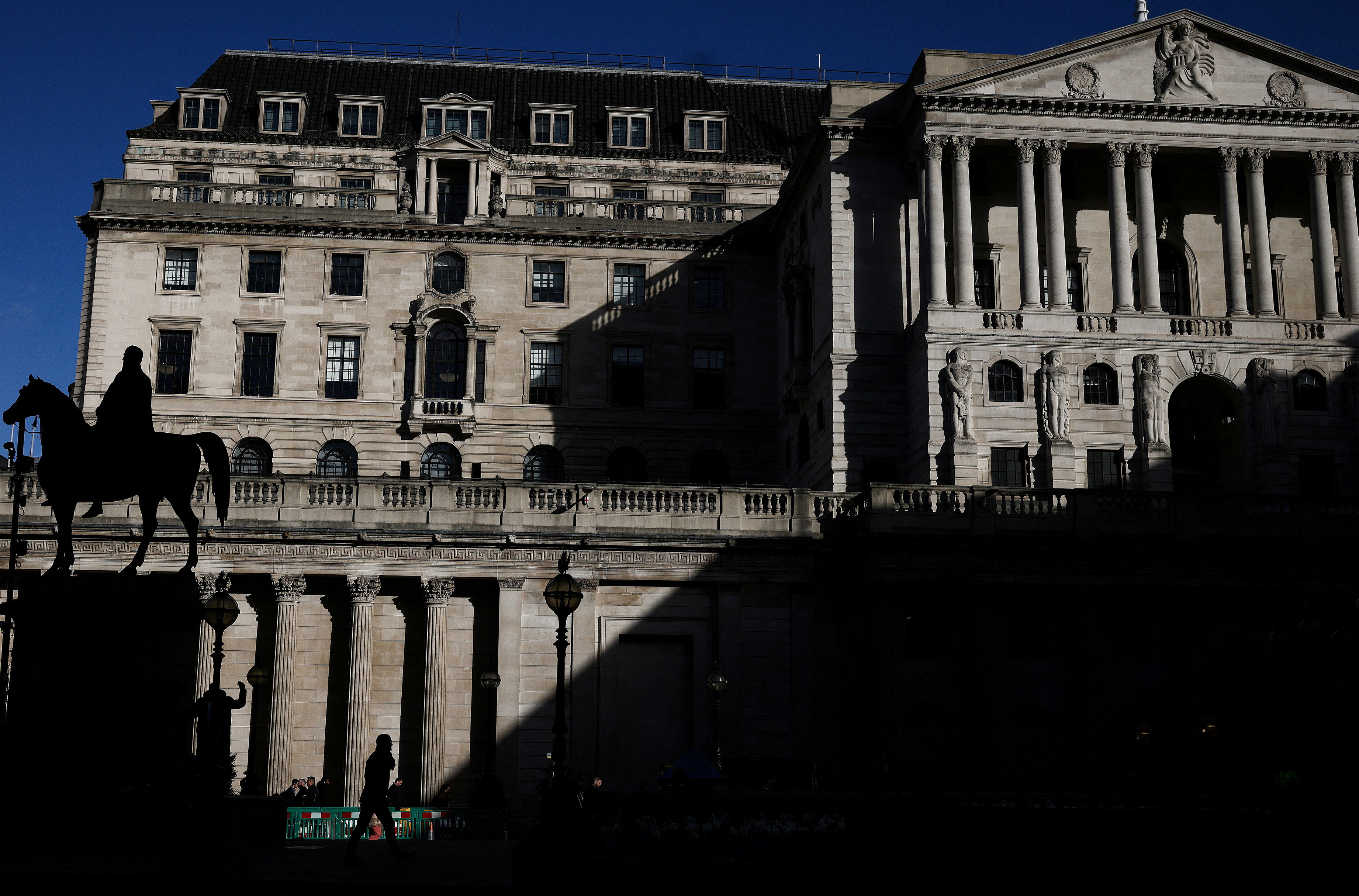The Bank of England on Thursday followed the Federal Reserve and the Swiss National Bank in pressing on with interest rate hikes, arguing the UK banking sector was strong enough to withstand the instability that rippled through markets this month.
Investors have dumped banking stocks globally over the past two weeks, with rapid interest rate hikes to rein in inflation blamed by some as the root cause of the debacle.
U.S. lender Silicon Valley Bank’s collapse over bond-related losses tied to a surge in interest rates was the initial trigger for the turmoil, and JPMorgan Chase & Co analysts estimate the “most vulnerable” U.S. banks likely lost a total of about $1 trillion in deposits since last year. Half of the outflows occurred in March after SVB’s collapse, they said.
But policymakers have stressed the turmoil is different from the financial crisis 15 years ago, and the Bank of England became the latest central bank to hike rates this week.
After its eleventh straight hike, the BoE said it had noted the “large and volatile moves” in financial markets, but that Britain’s banking system remained resilient.
“We’ve had events in the last two weeks particularly which have signalled problems that have had to be dealt with in the global banking system. And there has been very prompt action,” BoE governor Andrew Bailey told broadcasters.
“We have learnt a lot of lessons from the financial crisis. Of course, we keep learning lessons, but I’m confident that the banks in (Britain) are in a much stronger position,” he said.
BANK SHARES FALL
While recent market jitters have eased, they have prompted investors to adjust to more challenging economic and lending conditions ahead.
The index of top European banks .SX7P fell 2.5%, with German banking giants Deutsche Bank DBKGn.DE and Commerzbank CBKG.DE falling 3.2% and 4.1%, respectively. London-headquartered HSBC HSBA.L dropped 2.9%.
U.S. banking shares initially rose with traders citing the Fed’s hints that it could soon pause further increases in borrowing costs as a source of some relief, but later turned negative.
Troubled U.S. regional lender First Republic Bank FRC.N, which is among banks speaking to peers and investment firms about potential deals, fell 7.6% after rebounding as much as 10% earlier in the session.
About 90% of the bank’s stock market value has evaporated this month, leaving it with a market capitalization of about $2 billion.
“Despite the strong efforts to protect, particularly First Republic, the crisis continues and investors are left wondering what is it that I’m not seeing,” said Rick Meckler, partner at Cherry Lane Investments in New Vernon, New Jersey.
Other U.S. banks under the microscope after the demise of SVB and Signature Bank SBNY.O added to recent losses. PacWest Bancorp PACW.O tumbled about 10%, Comerica CMA.N fell 8.7% and Zion Bancorp ZION.O lost over 6%.
Truist Securities cut its price targets on regional banks including Zions and Comerica, warning of slower growth and higher credit costs.
The S&P 500 banks index .SPXBK dipped 1.1% to its lowest level since November 2020, and it has now fallen over 40% from its record high in February 2022.
BANK BOND PRESSURE
Earlier on Thursday, the Swiss National Bank raised its benchmark interest rate by 50 basis points and said the takeover of Credit Suisse – the biggest name ensnared by recent turmoil – by its Swiss rival UBS UBSG.S had averted a financial disaster.
To stop investor panic from spreading, the Swiss bank was rushed into the deal on Sunday with UBS Group AG, which along with Swiss authorities is racing to close the takeover within as little as a month, according to two sources with knowledge of the plans.
Spokespeople for UBS and Credit Suisse declined to comment.
Swiss authorities had urged the banks to come together and offered financial guarantees worth up to 260 billion Swiss francs ($280 billion) to get the deal done.
“At this moment the focus has to be that we can maintain financial stability and that the closing of the deal is smooth and fast,” SNB Chair Thomas Jordan told a news conference.
Citigroup downgraded Europe’s banking sector, warning the rapid pace of interest rate hikes will further weigh on economic activity and lenders’ profits.
The rescue of Credit Suisse has ignited broader concerns about investors’ exposure to a fragile banking sector.
Switzerland’s financial market regulator FINMA defended its decision to impose steep losses on some of Credit Suisse bondholders as part of its rescue, saying the move was legally watertight.
The decision to prioritise shareholders over Additional Tier 1 (AT1) bondholders rattled the $275 billion AT1 bond market and some Credit Suisse AT1 bondholders were seeking legal advice.
The convertible bonds were designed to be invoked during rescues to prevent the costs of bailouts falling onto taxpayers as it happened during the global financial crisis in 2008.
Politicians are also wary of public perceptions that banks are being bailed out again, after anger over the sector’s costly rescue in 2008. U.S. authorities say the recent support for SVB, in which all the bank’s deposits were protected, did not amount to a taxpayer-funded bailout.
The U.S. Senate Banking Committee called on the former chief executives of SVB and Signature Bank to testify as lawmakers weigh possible action.
“You must answer for the bank’s downfall,” the panel’s Democratic chair and ranking Republican wrote in separate letters to former SVB Chief Executive Gregory Becker and former Signature Bank CEO Joseph DePaolo.







Click here to change your cookie preferences